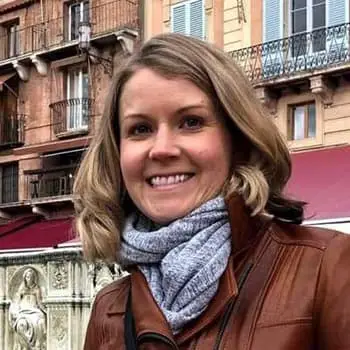While morphine addiction can be hard to overcome without a professional treatment program, certain medications can effectively treat symptoms of morphine addiction.
Morphine was first isolated in 1805. Since then, it’s become a mainstay in treating pain medically. Morphine is an effective pain reliever for managing post-surgical and cancer-related pain when used as prescription medicine. Over time, though, morphine can lead to misuse and dependence, and recreational abuse can lead to addiction and harmful side effects.
What Is Morphine?
Morphine is an opioid derived from opium that binds to receptors in the central nervous system and other body parts. Opioid drugs are similar to our body’s natural painkillers called endorphins. Opioids block pain messages from traveling on the nerves and reaching the brain. However, these drugs don’t treat the underlying causes of pain, only the sensations. Several forms of medical morphine are available, including liquids, injections, tablets/capsules and suppositories, and long and short-acting morphine medications. Morphine slows the central nervous system, with common side effects like constipation, nausea, dizziness and extreme tiredness.
Is Morphine Addictive?
Morphine may be habit-forming, especially with long-term use. Opioids like morphine can create a rewarding effect on the brain. They increase dopamine in the parts of the brain that control pleasure and reward, leading to euphoric feelings. When the dopamine reward pathways in the brain are regularly exposed to morphine, it can lead to out-of-control use and extreme cravings. Chronic morphine use can also lead to physical dependence. Physical dependence causes withdrawal symptoms if someone stops using the drug suddenly. Signs of morphine abuse can include:
Treatment Can Be Life Changing. Reach out today.

- Taking higher doses than prescribed
- Using morphine without a prescription
- Doctor shopping to get other opioid prescriptions
- Stealing or lying to get more
- Combining morphine with other substances, such as alcohol or benzodiazepines
- Using it in ways other than prescribed, such as chewing, snorting or injecting
- Taking morphine differently than prescribed
Morphine side effects can also include:
- Drowsiness
- Stomach cramps and pain
- Small pupils
- Problems urinating
- Headache
- Nervousness
- Dry mouth
- Mood changes
- Nausea, vomiting or loss of appetite
- Weakness
- Chest pain
Symptoms of Morphine Addiction
If someone abuses morphine, they are at a higher risk of developing an addiction. With addiction, the use of morphine is no longer in the individual’s control. Addiction is a chronic disease affecting mental and physical health and behavior. The Diagnostic and Statistical Manual of Mental Disorders, Fifth Edition (DSM-5) outlines the criteria for diagnosing a substance use disorder. Morphine addiction is classified as an opioid use disorder. To have an opioid use disorder diagnosis, someone must experience a period of distress and present with at least two of the following symptoms during the past 12 months:
- Use more drugs than planned
- Not able to cut back or control opioid use
- Spending a lot of time getting, using or recovering from the opioids
- Strong cravings or urges to use
- Not living up to responsibilities at work, school or home.
- Using drugs despite problems at work, school or home
- Not doing other activities because of opioid use
- Using opioids in dangerous situations
- Continuing to use opioids despite having physical or psychological problems related to use
- Needing to use more drugs to get the same effect
- Experiencing withdrawal symptoms
Consequences of Long-term Morphine Use
Along with addiction and dependence, other possible long-term effects of morphine use can include:
- Overdose
- Bone fractures and osteoporosis
- Breathing problems during sleep
- Suppressed immune function
- Increased pain sensations
- Chronic constipation
- Bowel obstruction
- Myocardial infarction
- Erectile dysfunction
- Infertility
- Depression
- Decreased libido
Treatment for Morphine Addiction
Opioid addiction can be extremely hard to overcome without a professional treatment program. Effective medications are available to help treat opioid use disorders and are beneficial when combined with behavioral therapy and individualized treatment plans for a whole-person approach.
Morphine Detox Program
Morphine withdrawal can be life-threatening and stems from dependence. When a person is dependent and suddenly stops or reduces their opioid use, they may go through withdrawal. A medical detox program provides necessary medical interventions as someone goes through morphine withdrawal. During medical detox, patients are under the care of medical professionals who help with safety and comfort. There’s a sense of structure to help patients navigate difficult situations and 24-hour support.
Symptoms of opioid withdrawal can include:
- Drug cravings
- Irritability
- Anxiety
- Abdominal pain
- Insomnia
- Vomiting
- Diarrhea
- Tremors
- Chills
Opioid withdrawal symptoms can last three to five days for most people and up to ten. Trying to quit cold turkey can be dangerous and lead to stronger cravings and a greater risk of relapse. The best way to alleviate opioid withdrawal symptoms is through medically-supervised detox. Medications that can help with morphine withdrawal symptoms include methadone and buprenorphine. These medicines can also be part of a long-term maintenance plan for opioid dependence. Clonidine doesn’t reduce cravings for morphine but can also help withdrawal symptoms, such as anxiety, agitation and muscle aches. Medicines for vomiting, diarrhea and insomnia may also be prescribed.
Inpatient Treatment
At The Recovery Village at Baptist Health, aside from medical detox, inpatient treatment is the most intensive level of care, with full-day programming. Patients live onsite in a residential setting during inpatient treatment. Every treatment plan is created for the individual, but inpatient treatment at The Recovery Village at Baptist Health may include:
- Access to 24-hour nursing and medical care
- Regular physician visits
- Counseling and psychiatric care
- Individual and group therapy
- Nutritional support
- Recreational treatment, such as yoga, exercise and art therapy
For many people, inpatient rehab occurs after completing medical detox. Then, once someone completes inpatient treatment, they might participate in a less restrictive step-down program, such as partial hospitalization or outpatient rehab. During residential care, the goal is to help someone learn how to live without drugs or alcohol and begin to build the skills for a healthy lifestyle.
Outpatient Treatment
When someone is physically and mentally stable and ready for a sense of accountability for their treatment and recovery, they might participate in outpatient rehab. An outpatient program can include:
- Medical services, including medication management
- Individual and group therapy
- Treatment for co-occurring mental health conditions
- Relapse prevention
Dual Diagnosis Treatment
Addiction often occurs with other mental health conditions. When someone has a co-existing substance use disorder and a mental health disorder, it’s a dual diagnosis. Each condition will affect the other, and complex treatment is required. At The Recovery Village at Baptist Health, we diagnose and treat co-occurring disorders. Dual diagnosis treatment helps reduce the risk of relapse, which is much greater if someone’s underlying mental health disorder isn’t well-treated.
Aftercare and Sober Living
Recovery from morphine addiction is a long-term process. Aftercare is a major component of recovery because many healthy habits established during treatment are reinforced as a person enters daily life. Planning for aftercare begins early in the treatment process. The goal of an aftercare plan is to provide support and resources to help someone maintain long-lasting recovery. An aftercare plan will include accountability measures and relapse prevention strategies. Patients may receive referrals for:
- Medication maintenance plans
- Recommendations to continue individual therapy
- Local group therapy recommendations
- A list of 12-step or support groups
- Sober living options
About Our Morphine Addiction Treatment Program
At The Recovery Village at Baptist Health, we offer multiple levels of care, with treatment plans carefully tailored to each person’s physical, emotional, mental and spiritual needs. Treatment programs include medical detox and inpatient and outpatient programs. Our goal is to help anyone needing addiction treatment receive high-quality care. The insurance verification process is simple, and our representatives can help you understand the details of your coverage. We can calculate your deductibles, out-of-pocket maximums and coinsurance percentages.
Our Facilities
The Recovery Village Palm Beach at Baptist Health is in a peaceful setting with comfortable living spaces and amenities. We offer medical and clinical treatment in an inpatient environment. Our Palm Beach facility includes a spectrum of residential treatment programs, including 24-hour medical detox support. Our customized treatment plans can include co-occurring disorder treatment. While staying at our Palm Beach facility, you’ll receive nutritious meals, healing spaces for recreation and relaxing and amenities such as an outdoor pool, two-fully equipped gyms and well-appointed rooms.
The Recovery Village Miami at Baptist Health offers comprehensive outpatient programs for drug and alcohol addiction and co-occurring mental health disorders. We’re in South Miami, close to other Baptist Health locations, to facilitate a smooth transition between programs. At our Miami location, programs include:
- Drug and alcohol detox
- Medication-assisted treatment
- Inpatient rehab
- Partial hospitalization program
- Outpatient rehab
- Dual diagnosis
- Family programs and workshops
- Aftercare and recovery
- Teletherapy
Get Morphine Addiction Treatment
Our team is available if you have questions, want to learn more or are ready to take the next step and get the treatment you deserve for morphine addiction. Contact us today.











